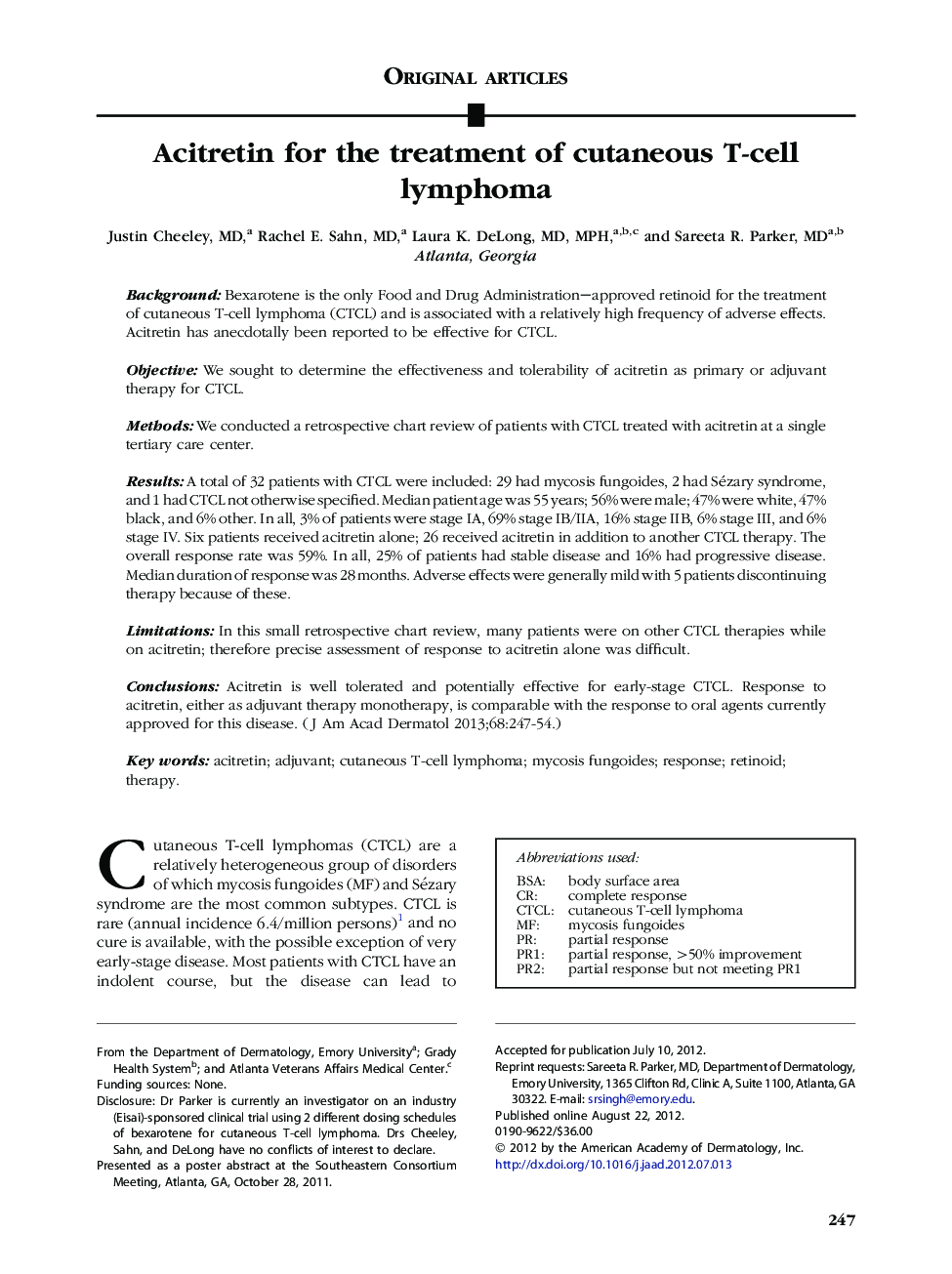| Article ID | Journal | Published Year | Pages | File Type |
|---|---|---|---|---|
| 3205634 | Journal of the American Academy of Dermatology | 2013 | 8 Pages |
BackgroundBexarotene is the only Food and Drug Administration–approved retinoid for the treatment of cutaneous T-cell lymphoma (CTCL) and is associated with a relatively high frequency of adverse effects. Acitretin has anecdotally been reported to be effective for CTCL.ObjectiveWe sought to determine the effectiveness and tolerability of acitretin as primary or adjuvant therapy for CTCL.MethodsWe conducted a retrospective chart review of patients with CTCL treated with acitretin at a single tertiary care center.ResultsA total of 32 patients with CTCL were included: 29 had mycosis fungoides, 2 had Sézary syndrome, and 1 had CTCL not otherwise specified. Median patient age was 55 years; 56% were male; 47% were white, 47% black, and 6% other. In all, 3% of patients were stage IA, 69% stage IB/IIA, 16% stage IIB, 6% stage III, and 6% stage IV. Six patients received acitretin alone; 26 received acitretin in addition to another CTCL therapy. The overall response rate was 59%. In all, 25% of patients had stable disease and 16% had progressive disease. Median duration of response was 28 months. Adverse effects were generally mild with 5 patients discontinuing therapy because of these.LimitationsIn this small retrospective chart review, many patients were on other CTCL therapies while on acitretin; therefore precise assessment of response to acitretin alone was difficult.ConclusionsAcitretin is well tolerated and potentially effective for early-stage CTCL. Response to acitretin, either as adjuvant therapy monotherapy, is comparable with the response to oral agents currently approved for this disease.
